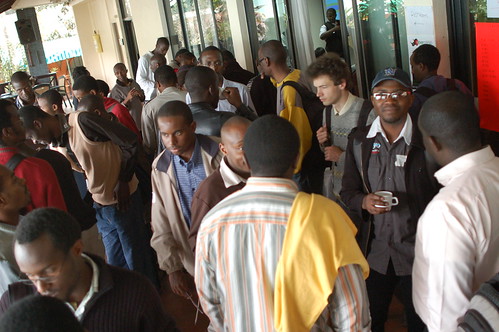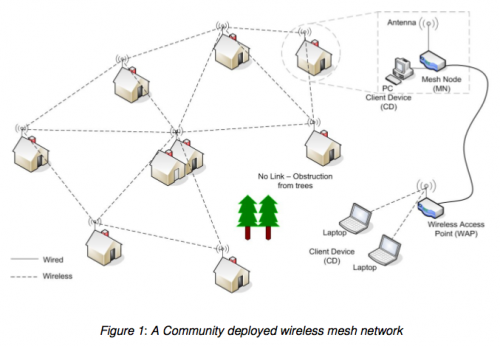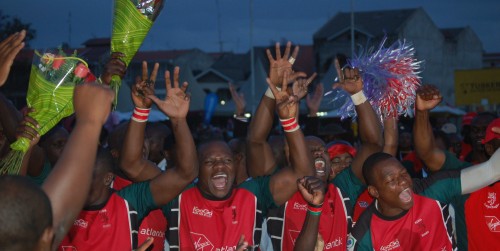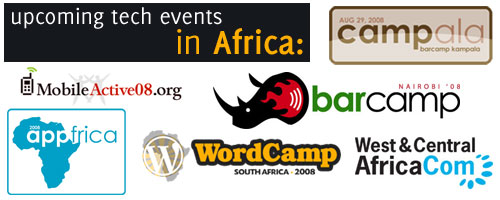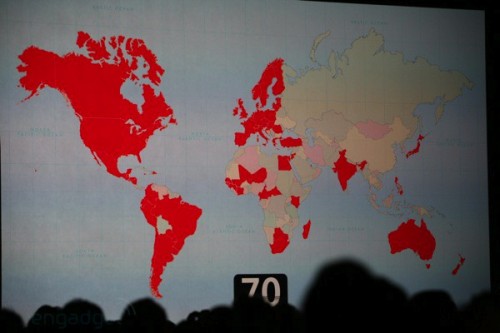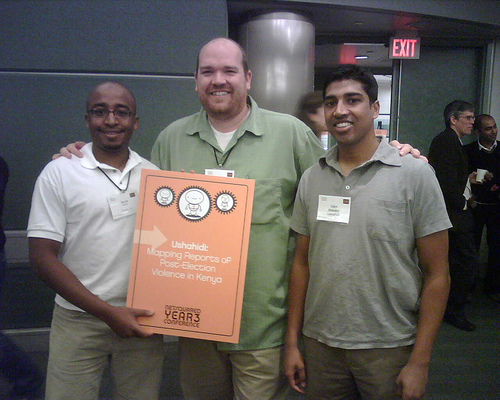 Things are definitely heating up in the African tech sphere according to my calendar of African tech events (Events RSS feed) for the remainder of the year. From Madagascar to Mauritius there are unconferences, conferences and adhoc meetups happening at a rate I haven’t seen before. The African tech scene is definitely getting bigger and noisier.
Things are definitely heating up in the African tech sphere according to my calendar of African tech events (Events RSS feed) for the remainder of the year. From Madagascar to Mauritius there are unconferences, conferences and adhoc meetups happening at a rate I haven’t seen before. The African tech scene is definitely getting bigger and noisier.
In the next two weeks we have 8 events covering 6 countries:
- Barcamp Madagascar
- ** Skunkworks@Innovation – Nairobi, Kenya
- Commonwealth Telecommunications Organisation – Nigeria
- * Barcamp Africa – Googleplex, USA
- ** Barcamp Johannesburg – South Africa
- ** MobileActive ’08 – Johannesburg, South Africa
- Capacity – Capetown, South Africa
- Facebook Developers Garage – Kampala, Uganda
** I’ll be attending these
* I will stream in live to Barcamp Africa with the South Africans, but it’s also open in Kenya and Ghana.
On top of these scheduled conferences and unconferences, there are many meetups happening all over the place – from the monthly 27Dinner in cities around South Africa to the bi-monthly Skunkworks meetings in Kenya.
Africa’s a happening place – just watch!
[As always, if you know of an upcoming African tech event, let me know and I’ll add it to the calendar]
